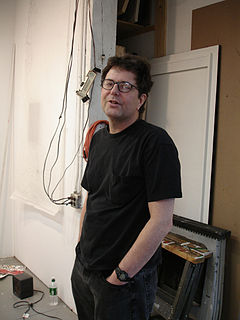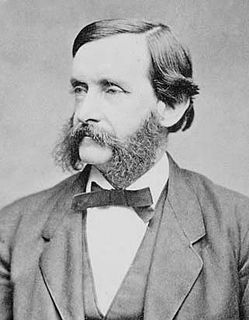A Quote by Gunnar Myrdal
Compared with members of other nations of Western civilization, the ordinary American is a rationalistic being, and there are close relations between his moralism and his rationalism. Even romanticism, transcendentalism, and mysticism tend to be, in the American culture, rational, pragmatic and optimistic.
Related Quotes
Whitman expressed the whole universe in his poetry and in his catalogues. That attitude almost defines what we call American romanticism, or American transcendentalism. I feel particularly close to them, because I am now out in the universe. I’m in a position to see nature from another point of view, to be outside the earth and see the big picture.
If we have an element of Americans here that reject western civilization, and that's a big element, that reject western civilization, then what have we? This is an effort on the left I think to break down the American civilization and the American culture and turn it into something entirely different.
If the resources of different nations are treated as exclusive properties of these nations as wholes, if international economic relations, instead of being relations between individuals, become increasingly relations between whole nations organized as trading bodies, they inevitably become the source of friction and envy between whole nations.
... the connection between imperial politics and culture is astonishingly direct. American attitudes to American "greatness", to hierarchies of race, to the perils of "other" revolutions (the American revolution being considered unique and somehow unrepeatable anywhere else in the world) have remained constant, have dictated, have obscured, the realities of empire, while apologists for overseas American interests have insisted on American innocence, doing good, fighting for freedom.
You see the one thing I've always maintained is that I'm an American Indian. I'm not a Native American. I'm not politically correct. Everyone who's born in the Western Hemisphere is a Native American. We are all Native Americans. And if you notice, I put American before my ethnicity. I'm not a hyphenated African-American or Irish-American or Jewish-American or Mexican-American.
The right of ordinary citizens to possess weapons is the most extraordinary, most controversial, and least understood of those liberties secured by Englishmen and bequeathed to their American colonists. It lies at the very heart of the relationship between the individual and his fellows, and between the individual and his government.
This nation was founded by men of many nations and backgrounds. It was founded on the principle that all men are created equal, and that the rights of every man are diminished when the rights of one man are threatened ... It ought to to be possible, in short, for every American to enjoy the privileges of being American without regard to his race or his color.
The Englishman's strong point is his vigorous insularity; that of the American his power of adaptation. Each of these attitudes has its perils. The Englishman stands firmly on his feet, but he who merely does this never advances. The American's disposition is to step forward even at the risk of a fall.
The argument now that the spread of pop culture and consumer goods around the world represents the triumph of Western civilization trivializes Western culture. The essence of Western civilization is the Magna Carta, not the Magna Mac. The fact that non-Westerners may bite into the latter has no implications for their accepting the former.




































